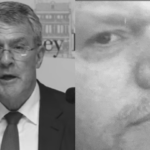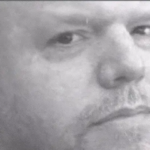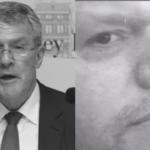Whistleblowers Remain Unprotected as Government Fails to Implement Promised Reforms

As Australian musicologist Professor Peter Tregear testified during a 12 August 2025 Senate inquiry hearing into governance at universities, and specifically in respect to his time as head of the Australian National University (ANU) School of Music, he made clear that whistleblower protections that are failing public sector workers elsewhere are also negatively impacting the tertiary sector.
“Whistleblowing of all kinds is not just discouraged,” Tregear said in reference to the culture at ANU, “it is actively suppressed, by, for instance, the habitual mishandling of public interest disclosures or the misuse of nondisclosure agreements.” And he added that this approach to complaints permits bullying, while “poor behaviour does not lead to negative consequences”.
Having been appointed head of the ANU music school in 2012, and charged with resolving internal difficulties within the institution, Tregear lodged three public interest disclosures with the university over 2016 to 2018, after his 2015 resignation, with 11 senior staff named as having misused funds or having left conflicts of interest undisclosed, and the ANU then mishandled these internal inquiries.
Tregear raised this issue afresh last week, after having initially aired his complaints in a submission to a 2022 bill amending the Public Interest Disclosure Act 2013 (Cth) (PID Act), which is the Act that provides protections for public sector employees who expose government corruption. And these initial reforms were being made ahead of a major overhaul of the PID Act that Labor had promised.
But the prolonged process of fixing whistleblower protections that former Albanese government attorney general Mark Dreyfus had been charged with appears to have drawn to a halt, as he was replaced by new AG Michelle Rowland after the May election, and she insisted in July that “the government’s reforms to the PID Act are working”, despite the major reform not yet being drafted.
Rewarded for noncompliance
“Deflection and denial are standard response when managerial problems attract outside attention,” Tregear told the Senate inquiry in respect of ANU on 12 August. “The ANU’s inscrutable internal administration of a substantial allocation of taxpayers’ money it receives under the national institute grants scheme similarly fuels an unhealthy culture across the campus.”
“Senators, I hope you will agree this is a wholly unacceptable situation,” the music professor continued. “We should expect, as a matter of course, that university councils, like any governing body, will always encourage a healthy forensic scepticism towards the organisations they govern and will always be able to probe and challenge managerial decisions.”
But Tregear was clear at the Senate inquiry that this was not the case, as ANU had mishandled three public interest disclosures that he submitted internally, and in fact, it simply neglected them until he prompted officials to progress them. The professor then went to the Commonwealth Ombudsman to complain about the university’s mishandling of his official whistleblower complaints.
Commonwealth Ombudsman delegate Cassandra Hodzic then wrote to Tregear in September 2020 to inform him that the investigation into his ANU matter was complete. Indeed, the university had submitted its inquiry report to the Ombudsman, in which it had concluded that Tregear was “a liar”, “a manipulator” and was “untrainable”.
The professor was aware of these conclusions made in the ANU investigation. He insisted to the Ombudsman that these were unfounded, so Hodzic then repeatedly contacted ANU for further details to substantiate its claims, which it ignored. So, the tertiary institution avoided more scrutiny simply by refusing to respond to inquiries under the Ombudsman Act 1976 (Cth).
“The ANU did not respond to our observations,” Hodzic told Tregear in her letter regarding the final outcome of the Ombudsman inquiry into his matter. “I have decided to finalise my investigation of your complaint at this point, because I do not think that further investigation would be likely to result in a different outcome for you.”
Protections never progressed
The Morrison government launched three whistleblower cases in 2018/19, which involved ex-ASIS agent Witness K, former ADF lawyer David McBride and former ATO officer Richard Boyle. This saw the Coalition attempting to punish these men for blowing the whistle incorrectly, as per the PID Act, and the high-profile cases garnered much public derision for attempting to punish the messenger.
This lead then federal Labor MP Mark Dreyfus to declare in October 2021 that he would be progressing a major overhaul of the PID Act if elected. He’d drafted the Act in 2013 in an earlier stint as AG, and following the release of the 2016 Moss report, which made 33 recommendations to improve it, the Coalition had simply left it as bad law that provided inadequate protection.
Dreyfus was re-elected and reappointed AG in May 2022. He declared in November that year that he’d make initial amendments to the PID Act to facilitate the mid-2023 launch of the National Anti-Corruption Commission (the NACC), prior to a major overhaul of the PID Act. But this second round of reforms was never forthcoming, and it was expected to bring more formidable changes.
A November 2023 consultation paper regarding the second round of PID Act reforms was released. But Dreyfus was replaced by Rowland in May this year, before any draft of the further reforms had been released.
The consultation paper had contemplated extending criminal immunity for whistleblowers in respect of preparatory acts made in blowing the whistle, which is the reason why Boyle is currently facing prison: the former ATO employee made records to prove his case regarding corrupt practices to the taxation office itself, and for this, he may be made to spend time in prison.
As for new AG Rowland, she announced on 31 July 2025 that the first sixth-monthly report on the operation of the PID Act was in, and the “significant improvements” made in 2023 show the reforms “are working”, and added that the government is “committed to strengthening the public sector whistleblowing framework and is considering further reforms to improve whistleblower protections”.
A higher authority
Following the re-election of the Albanese government on 3 May, the Australia Institute and Fairer Future published an open letter calling on the newly elected parliament to establish a Whistleblower Authority. Signed by over a dozen of former judges, ex-ombudsman and academics, the letter calls for integrity officers staffing the authority to be officially elected members of parliament.
Independent MPs and Senators, led by Andrew Wilkie, introduced the Whistleblower Protection Authority Bill 2025, into the last parliament in February, and this bill was reintroduced into the new parliament by Senator David Pocock on 23 July 2025, at which point it was then sent to the Senate Legal and Constitutional Affairs Legislation Committee for inquiry.
In a press release last week, the Human Rights Law Centre set out that the authority would ensure that whistleblowers exposing government corruption would be safeguarded through the entire process, as it would be charged with “providing information, advice, assistance, guidance and support to whistleblowers and potential whistleblowers”.
“It took more than 20 years for governments to accept Australia needed a national anti-corruption agency,” outlined Griffith University Professor A J Brown, who is a noted expert on whistleblower protections. “But no integrity system can work without a competent body to ensure whistleblower protections work in practice, not just on paper.”
“The time is right to ensure justice for our most valuable but vulnerable workers and professionals, through concrete measures to help those who speak up under any of our federal whistleblowing laws,” the chair of Transparency International Australia further clarified.







